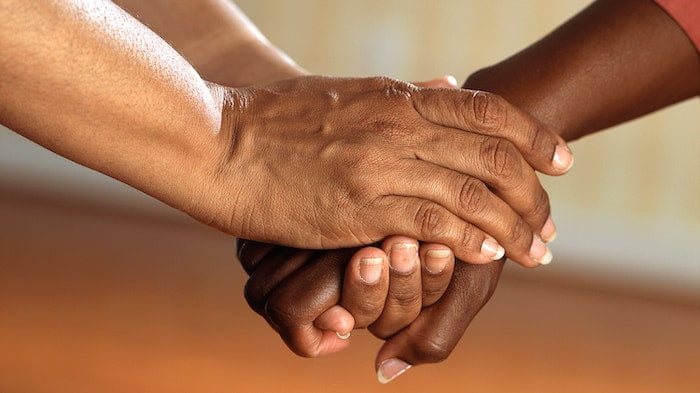Drug & Alcohol Rehab in Thatcham
One of the main reasons that people are reluctant to go to drug and alcohol rehab in Thatcham is that they have been affected by the stigma of getting addiction treatment.
This stigma is applicable to any type of addiction treatment, including home detoxing, fellowship groups and outpatient treatment.
However, it is more commonly linked to inpatient drug rehab, perhaps because it is harder to hide the fact you are struggling when you go to rehab for 28 days.
The stigma associated with rehab can be largely attributed to the belief that people with addiction are weak. Some people believe it is possible to resist addiction, so when they see people going to a treatment facility, they conclude that they mustn’t have been strong enough to get sober alone.

Another cause is the media. We have all developed an idea of rehab that is based on articles we have read and films we have watched.
We may believe that rehab is only for people with severe mental health problems, or people who are in the last stages of addiction, whereas it is for anyone with a dependency or addiction.
Finally, many people are very private about their mental health struggles, and this has led to addiction being hidden in society.
Though we are learning more about it, most people do not truly know what addiction is and what rehab does. For this reason, rehab naturally becomes something that is not understood.
Don’t let addiction control your life – get the help you need from a drug and alcohol rehab in Thatcham by calling us on 0800 088 66 86
How Can I Show My Loved One That Going to Drug and Alcohol Rehab in Thatcham is Not Shameful?

Here are our top tips for taking the shame away from drug and alcohol rehab in Thatcham when you are speaking to a loved one who is in need of addiction treatment.
Voice your opinion of rehab
The easiest way to take the stigma away from rehab is to be the person who promotes it.
When talking to your loved one, tell them that you wish more people understood how rehab works and that they weren’t misled by unrealistic portrayals in the media.
It is possible that your loved one does not know much about rehab, and they are being guided by myths.
When you explain how rehab works, they may realise that going to rehab for treatment is not something to be ashamed of.
As you discuss the benefits of residential rehabilitation, you could also touch on the reality of addiction.
This will further help to reduce stigma, as you can mention the fact that addiction is a disease, and recovery is not a simple case of choosing to stop using alcohol and drugs.
Comprehensive recovery involves addressing the root of the problem and helping the patient heal by offering specialist care.

Be an example of vulnerability
It is much more likely that your loved one will open up to you if you have already opened up to them.
If you have experienced addiction, it is a great idea to be honest about this and to tell your loved one how you felt when you were suffering, compared to how you feel now.
If you have never had an addiction, you could open up about something else that has deeply affected you, such as a mental health disorder.
Sometimes, people with addiction just need to hear that they are not alone in their mental illness. The belief that they are weak for struggling is challenged when they realise that lots of people are struggling.
There is no guarantee that the person of concern will get vulnerable just because you do, so do not push them into talking about something that they are not ready for.
Simply set the tone, encourage openness, and hope that they feel comfortable coming to you when they are ready to get help for their substance abuse problem.

Research rehab together
Actively researching drug and alcohol rehab in Thatcham together could help the person of concern to build their confidence before finally feeling ready to get a referral to inpatient drug rehab.
As you research rehab centres, your loved one may end up expressing that they feel ashamed, or that they are worried about feeling shame when they go to rehab.
This will be a chance for you to ask why they feel ashamed, and to challenge their negative thoughts with logic (without invalidating their emotions).
For example, you could touch on the fact that shame is very common in people with addiction, that shame can trap people in addiction for longer, and that addiction is just one type of mental illness, and mental illness runs in most families (meaning your loved one has no reason to feel ashamed).
For help encouraging your loved one to attend a drug and alcohol rehab in Thatcham, talk to our experts on 0800 088 66 86
NHS Rehabilitation

NHS rehab is the support that is offered to individuals struggling with their alcohol consumption or drug use through the National Health Service.
This means that treatment will be offered free of charge.
You can ask about NHS addiction treatment by speaking with your GP, community mental health team, or other members of NHS staff.
This kind of treatment can take several forms, including:
- Prescription medications
- Addiction counselling
- Behavioural therapy (such as cognitive behavioural therapy or dialectical behavioural therapy)
- Group therapy
- Family therapy
- Support groups
There are several charity and NHS-run recovery services operating near Thatcham, including:
1. West Berkshire CAMHS
Address: Turnpike Rd, Thatcham, RG18 3AP
Telephone: 01635 295 555
2. Westminster Drug Project – West Berkshire
Address: 1 Station Road, Newbury, RG14 7LP
Telephone: 0300 303 4554
Website: https://www.wdp.org.uk/west-berkshire-help-for-adults
3. Eight Bells For Mental Health
Address: Friends Meeting House, 1 Highfield Avenue, Newbury, RG14 5DS
Telephone: 07387 962 220
Website: https://eightbellsnewbury.co.uk/
There are also several mutual support groups that can offer you free help, including Alcoholics Anonymous, Narcotics Anonymous, Cocaine Anonymous and SMART Recovery.
You can also get free mental health support from organisations like Mind UK, Young Minds, Rethink Mental Illness, Samaritans and Papyrus.
Typically, support accessed through the NHS will initially be outpatient.
Outpatient means that you go to each appointment for your treatment, and then return home.
It is much harder to access inpatient treatment through the NHS due to extensive waiting times and the high cost of this form of treatment.
For help accessing addiction support through the NHS, talk to our experts on 0800 088 66 86
What are the Consequences of Avoiding Drug and Alcohol Rehab in Thatcham?

If you are compelled to avoid drug and alcohol rehab in Thatcham in order to not feel ashamed, we want to discourage you from doing this by outlining the negative consequences of delaying recovery from addiction.
Firstly, if you do not go to drug and alcohol rehab in Thatcham, you will not be able to have a wide range of addiction treatments on a daily basis.
You may have one type of therapy each week, and even experience a medical detox, but this will be nothing like going to rehab.
At drug and alcohol rehab in Thatcham, you will try out many different types of therapy. As this is part of the rehab programme, you will not pay any extra to experience specialist therapy.
For example, if you have PTSD, you can try EMDR therapy at rehab, but you could also do this alongside dialectical behavioural therapy, motivational enhancement therapy, family therapy and psychotherapy.

Secondly, you will not receive adequate support for recovery without going to drug and alcohol rehab in Thatcham.
Even if you are lucky enough to have supportive friends and family, you will not know what it’s like to be supported by many different medical professionals every day.
The result of this is that you may feel more isolated, which can lead to mental health complications.
Furthermore, if you are not being checked on by health care staff, there is more chance that you will relapse.
The consequences of relapse vary widely, but the most dangerous outcomes are long-term illness or death.
Find the support you need from a drug and alcohol rehab in Thatcham by giving us a call on 0800 088 66 86
Is Every Patient at Drug and Alcohol Rehab in Thatcham Determined to Recover From Addiction?

Unfortunately, we cannot tell you that every patient you meet at drug and alcohol rehab in Thatcham will show great determination to get sober.
Many people go to rehab for different reasons. They may want to please their family, keep their job, or prove to the court that they are doing something about their addiction.
It is not wise to go to rehab for any of these reasons. The relapse risk is only reduced when you go into rehab with the desire to make a change, as this means you will get involved with every step of the rehab programme.
The good news is that you will also meet many people who are dedicated to long-term sobriety. Some of them will have been in rehab for longer than you, and they will be able to keep your spirits up by showing you that recovery is possible.
Others will be starting out, just like you, and they can bond with you over this new experience.
Make sure that you end up at the right drug and alcohol rehab in Thatcham by calling us today on 0800 088 66 86
FAQs About Substance Addiction

Can you always see the signs of addiction in someone else?
No, you cannot always tell that someone has an addiction. People can hide their problem very well, especially if you only see them in certain contexts, e.g., at work or at a hobby.
However, it is also true that you can be in denial about the signs of addiction, so you could spot the early signs in someone, but dismiss them as you do not want to believe they have a problem.
This often happens in families, as people do not want to take responsibility for their family member having a substance use disorder.
Sometimes, the symptoms of addiction are similar to the symptoms of other mental illnesses, so it can be tricky to say whether someone has an addiction.
All you can do is research the common signs and do your best to identify whether the individual meets the criteria.
As well as looking for physical changes (a disheveled appearance, pale skin, eye bags, withdrawal symptoms etc), you can look for psychological signs (mood swings, tolerance, depression etc).

Can you always identify addiction in yourself?
Surprisingly, many people do not identify addiction in themselves. They may have only witnessed a certain type of addiction that they do not relate to, and therefore they may believe that they do not have a problem.
For example, if they grew up with an alcoholic parent with a severe addiction, they may not realise that their moderate physical addiction to prescription drugs also requires treatment.
Another example is that someone may have an addiction to shopping, but because all of their friends are impulse buyers who struggle with managing finances, they do not realise their problem is serious enough to warrant treatment.
It is also common for people to be in denial about their issues, so even if they are being told that they need help, they may refuse treatment and pretend that they are not struggling.
If you are interested in addiction treatment, we assume you are not in denial. However, if you are experiencing any denial, you can get in touch with us and learn why denial is linked to addiction, as well as how to stop being in denial.

Is it possible to recover from addiction without going to rehab?
Yes, you can recover from a drug or alcohol addiction without going to drug and alcohol rehab in Thatcham.
Similarly, you can relapse into addiction despite going to a private rehab facility. That’s why we offer referrals to a range of treatment centres, not just inpatient rehabs.
However, the reason we talk about residential rehab the most is that it is much easier to recover from addiction when you have been to drug and alcohol rehab in Thatcham.
It has everything you need, from physical treatments to psychological treatments.
On top of this, the aftercare is exceptional, and tends to last a year, which means you are supported by your rehab programme for around 13 months in total. Compared to a home detox, which lasts around a week, this is an incredible amount of support.
If you avoid addiction treatment entirely and try to recover on your own, it will be almost impossible to get sober.
Detoxing will be much more dangerous and less effective, and the lack of therapy will leave you vulnerable to triggers.
Even if you have been to rehab in the past and then relapsed, please do not consider getting sober on your own. You are welcome to return to drug and alcohol rehab in Thatcham more than once, and you will not be judged for struggling with sobriety.

Are certain substances more addictive than others?
Yes, some substances are more addictive than others.
There is a reason that we hear of more people dying from a heroin addiction than a cannabis addiction. Each drug has a different chemical make-up, so it affects your brain and body differently.
However, do not let this lead you to abuse certain substances simply because they are less addictive.
It is still very dangerous to use addictive substances, and you cannot predict whether it is going to lead to severe addiction.
When we are looking into the addictiveness of a drug, we have to look at both the physical and psychological attraction. Just because cocaine is less physically addictive than alcohol does not mean that you will not become psychologically dependent on it very quickly.

Is there any substance you can use frequently without developing an addiction?
No, there is no addictive substance out there that will never cause addiction in users.
It is possible for some people to use drugs regularly without being addicted, but there is not one specific drug that will allow for this.
When you consume an addictive substance, such as acid or amphetamines, you are risking developing an addiction, and there is nothing you can do about that.
This is why we promote abstinence so clearly – we do not believe the short-term effects of illegal drugs are worth it, especially when you think about the terrible consequences that could come from a long-term drug addiction.
If you have any further questions about drug and alcohol rehab in Thatcham, give our team a call on 0800 088 66 86
Contact Us

If you are addicted to any substance or behaviour, you can go to drug and alcohol rehab in Thatcham and learn how to rebuild your life.
You do not have to be defined by your substance misuse forever. By getting help, you could start to live for yourself instead of living for addiction.
Our dedicated team can discuss treatment with you over the phone on 0800 088 66 86
We understand that not everyone wants to go to a treatment centre in their hometown, so we will give you options for different locations in case this is something you would prefer.
If you are calling on behalf of a family member, we need to inform you that we will not be able to secure a referral unless the person of concern contacts us directly.
However, we would love to offer free advice about drug and alcohol rehab in Thatcham that you can pass on to your loved one.
Every rehab in England and Wales that we work with is vetted by the Care Quality Commission.
Get help for addiction across Berkshire, including in Bracknell, Reading, Slough, Crowthorne, Sandhurst, Newbury, Windsor, Maidenhead, Ascot, Eton, Wokingham, Woodley and many more.


